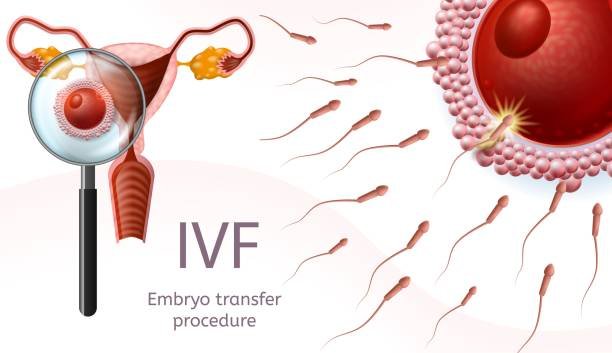
In an in vitro fertilization(IVF) procedure, Embryo Transfer (ET) is not only the final but also the most crucial step. A good embryo transfer determines the probability of success of an IVF cycle, and for this, clinicians and embryologists need to work in close collaboration.
The procedure of Embryo transfer is not painful and anesthesia is generally not needed.
We, in our clinic, follow certain principles like keeping the embryo transfer as atraumatic as possible, an ultrasound-guided transfer always, use of soft embryo transfer catheters, and dropping the embryos at the right place in the uterus. At the best IVF clinic in Kolkata, such meticulous practices are standard to ensure the highest success rates.
Many times further improvisation is needed to make the procedure more successful like Trial transfer, aspiration of cervical mucus before the transfer, timely completion of the embryo transfer procedure, and straightening of the utero-cervical angle.

1. After the loading technique for the embryo
2. Absence of bacterial contamination
3. Speed of injecting needs to be well controlled
4. Prevention of uterine contractions
It has been seen that the use of antibiotics before the transfer, performing two transfers in the same cycle, prolonged bed rest, and sexual intercourse after the transfer do not impact the outcome of embryo transfer.
What is well-accepted today is the importance of a gentle atraumatic transfer where no damage to the endometrium and minimal uterine contractions are induced. Following embryo transfer, no particular factor other than progesterone luteal phase support has been shown to have a positive effect on pregnancy outcome.
The primal state of infertility is what can be overcome by the process of the transfer and it in modern sciences with stem cell as such will come into play in the modern future of the transfer. In no time it has come to a point of embryo cloning and will be hugely adopted amongst others.
Content source : Advanced Fertility
During IVF, you may hear terms like "Grade A embryo," "blastocyst quality," or "ICM and TE grading." Many couples feel...
The IVF journey can be one of the most emotionally intense experiences a couple faces. From hormone injections and medical...
Planning a pregnancy is one of the most meaningful steps in your life — but the journey doesn’t begin only...
Male fertility is closely associated with the health of sperm. A healthy sperm count and strong motility are essential for...
Meet Priyanka, a busy marketing professional. Lately, her periods have become heavy and unpredictable. Cramping disrupts her workday, and she’s...
Role of IVF in Overcoming Infertility Challenges in Endometriosis Endometriosis is an often painful disorder in which tissue similar to...
Journey towards parenthood Infertility and childlessness can be challenging journeys for couples to navigate. The emotional and physical toll of...
The "Save the Sibling" Program "Save the Sibling" program, a collaboration of Renew Healthcare, Cordlife, and HCG EKO offers hope...
What is PCOD? PCOD, also known as Polycystic Ovary Syndrome, is a common hormonal disorder that affects women of reproductive...
Intrauterine insemination aka IUI is a common fertility treatment that many couples opt for having a biological child. The experts...
